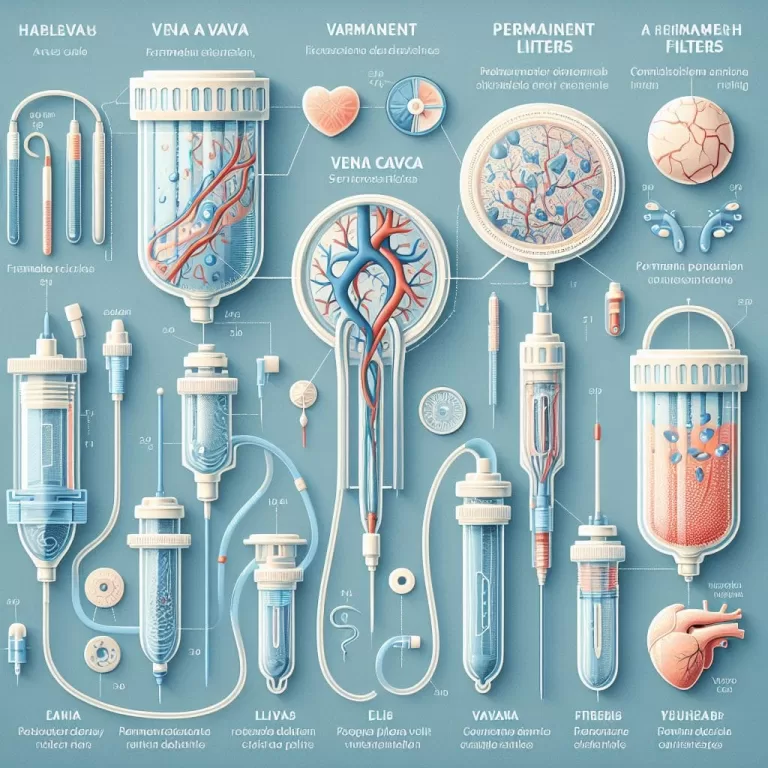IVC Filter
**IVC Filter (Inferior Vena Cava Filter)**
An IVC filter is a medical device implanted into the inferior vena cava (IVC), a large vein in the abdomen. It is used to prevent blood clots (thrombi) from traveling from the legs to the lungs, causing a life-threatening condition called pulmonary embolism.
**Indications:**
* High risk of developing deep vein thrombosis (DVT), such as patients with genetic clotting disorders or after surgery
* DVT or pulmonary embolism that has already occurred
* Difficulty in using blood thinners
**Procedure:**
IVC filters are implanted through a minimally invasive procedure using fluoroscopy (real-time X-ray imaging). The filter is inserted into the IVC and secured in place.
**Types:**
* Permanent: Made of metal or plastic, intended to remain in the body indefinitely
* Retrievable: Specifically designed to be removed after a period of time, typically when the risk of blood clots has diminished
**Efficacy:**
IVC filters are effective in reducing the risk of pulmonary embolism. They do not eliminate the risk completely and can have certain complications.
**Complications:**
* IVC perforation (rare)
* Filter fracture or migration
* Long-term complications from permanent filters include pain and IVC obstruction
**Alternatives:**
Alternative treatments for blood clot prevention include blood thinners, compression stockings, and lifestyle modifications. The best treatment option depends on individual circumstances.
Discover the Types of Vena Cava Filters: A Comprehensive Guide for Healthcare Professionals

Vena cava filters may prevent blood clots in your veins from reaching your lungs. They may be permanent, long-term solutions or temporary screens that may be removed after a few weeks or months. The vena cava is the large vein…
